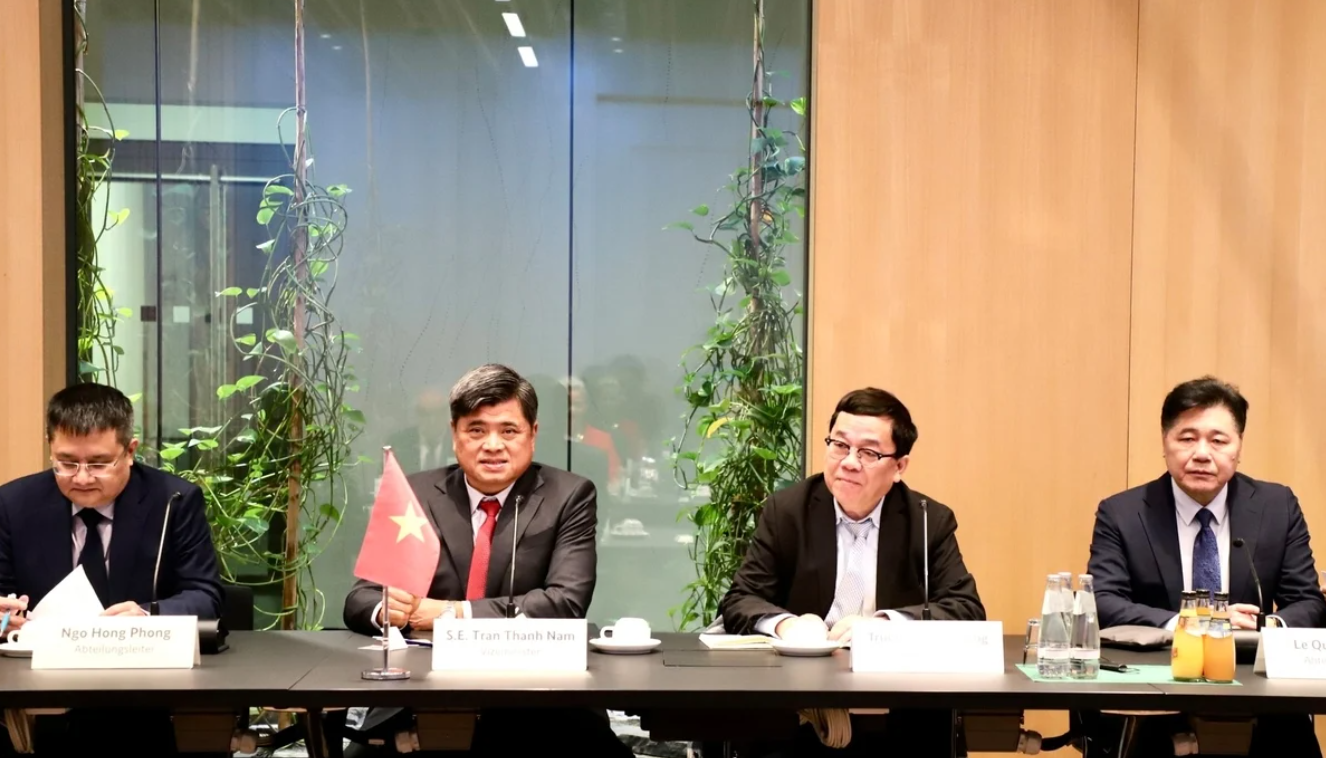On May 15 and 16, 2025, Deputy Minister of Agriculture and Environment of Vietnam Tran Thanh Nam paid a working visit to the Federal Ministry of Food and Agriculture (BMEL) and Federal Ministry for Economic Cooperation and Development (BMZ) of the Federal Republic of Germany.
The visit was part of the celebration of the 50th anniversary of diplomatic relations between Vietnam and Germany (1975–2025) and over a decade of strategic partnership.
During the meetings, Deputy Minister Tran Thanh Nam proposed four key cooperation initiatives between the two ministries to promote agricultural development and vocational training:
First, cooperation in mechanization in the fields of fisheries, livestock, and forestry. Deputy Minister Nam emphasized the need to develop stable value chain-based production models and to enhance mechanization to improve productivity and efficiency. He proposed that the two sides jointly develop and sign a Memorandum of Understanding (MoU) in this area to help Vietnamese farmers access advanced German technologies.
 Deputy Minister Tran Thanh Nam (second from left) presented four cooperation proposals to the Federal Ministry of Food and Agriculture of Germany. Photo: Phuong Hoa.
Deputy Minister Tran Thanh Nam (second from left) presented four cooperation proposals to the Federal Ministry of Food and Agriculture of Germany. Photo: Phuong Hoa.Second, ensuring food safety throughout the entire production chain. Vietnam seeks to learn from Germany’s experience in quality control and food safety, thereby increasing the export value of its agricultural products. Cooperation in this field would help Vietnam improve its quality management systems and strengthen international market trust in Vietnamese products.
Third, enhancing vocational training capacity linked to hands-on practice. Deputy Minister Nam proposed strengthening cooperation in agricultural vocational training, focusing on practical skills, the application of new technologies, and digital transformation. Both sides also encouraged greater participation of women in training programs to empower female laborers in the sector.
Fourth, developing mechanization service centers in Vietnam. Previously, the Ministry of Agriculture and Environment of Vietnam had proposed establishing a mechanization service center for agricultural production in the Mekong Delta. This center would serve as a hub to support farmers in accessing, operating, and applying technical innovations, thereby contributing to a more effective and sustainable agricultural sector.
The German Ministry of Agriculture highly appreciated these initiatives and expressed readiness to coordinate with the German Agricultural Society (DLG) and both governments to implement cooperation activities. German Deputy Minister of Agriculture, Silvia Breher, particularly emphasized the importance of vocational training, viewing it as a field that offers tangible benefits for both German businesses and Vietnamese workers.
During the visit, the Vietnamese Ministry also signed six Memoranda of Understanding with vocational education and training centers in Erfurt city, Thuringia state, marking a significant step forward in bilateral cooperation to develop a high-quality agricultural workforce.
Agricultural and vocational training cooperation between Vietnam and Germany continues to grow and expand, contributing to export value enhancement, sustainable agricultural development, and the promotion of digital transformation in Vietnam.